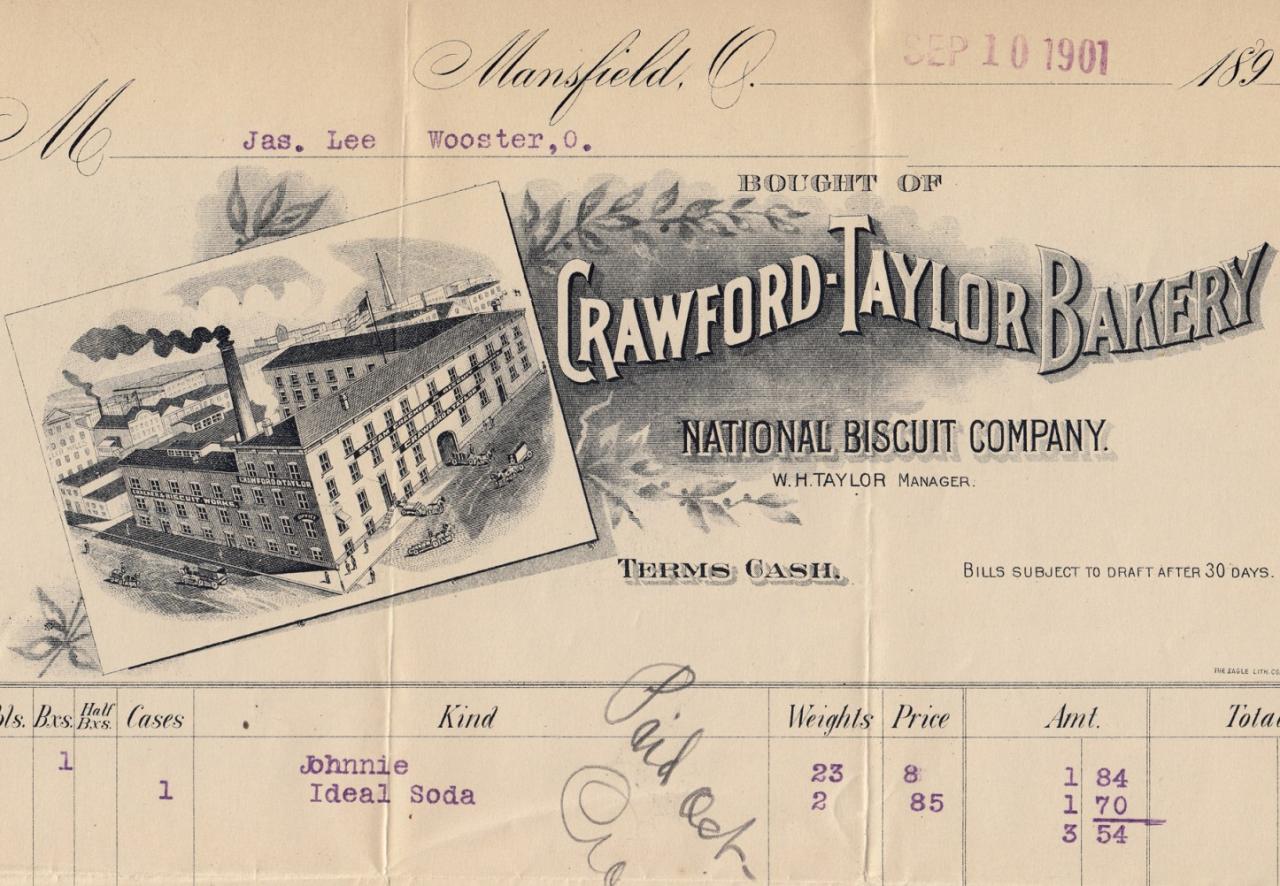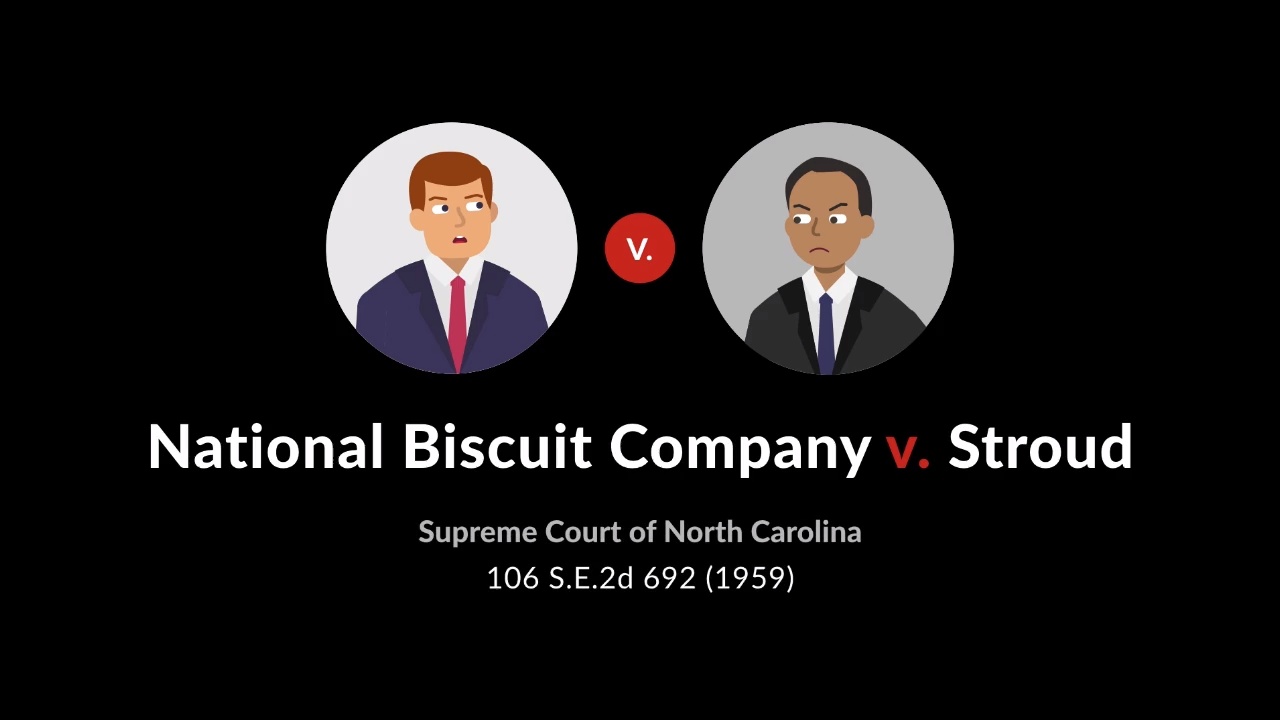In the legal realm, National Biscuit Company v. Stroud stands as a pivotal case that has shaped the doctrine of promissory estoppel. This captivating case explores the boundaries of contractual obligations and the consequences of broken promises.
The case centers around the promise made by National Biscuit Company to its distributor, Stroud, to purchase a significant quantity of crackers. However, when market conditions changed, National Biscuit Company reneged on its promise, leaving Stroud facing substantial losses.
Case Summary
National Biscuit Company v. Stroud, decided by the Supreme Court of the United States in 1918, involved a trademark dispute between two companies producing similar biscuit products.
The legal issue at stake was whether the “Uneeda Biscuit” trademark, owned by National Biscuit Company (Nabisco), was infringed by the “Come-Uneeda Biscuit” trademark used by Stroud.
Outcome
The Supreme Court ruled in favor of Nabisco, holding that the “Come-Uneeda Biscuit” trademark was confusingly similar to the “Uneeda Biscuit” trademark and therefore infringed upon it.
Legal Principles: National Biscuit Company V. Stroud
The court applied several legal principles in reaching its decision in National Biscuit Company v. Stroud. These principles included the doctrine of promissory estoppel and the statute of frauds.
Doctrine of Promissory Estoppel
The doctrine of promissory estoppel prevents a party from going back on a promise if the other party has reasonably relied on that promise to their detriment. In this case, the court found that National Biscuit Company had made a promise to Stroud that it would purchase his crackers.
Stroud had reasonably relied on this promise by investing money in his business. Therefore, the court held that National Biscuit Company was estopped from denying its promise.
Statute of Frauds
The statute of frauds is a law that requires certain types of contracts to be in writing to be enforceable. In this case, the court found that the contract between National Biscuit Company and Stroud was not in writing. Therefore, the court held that the contract was unenforceable under the statute of frauds.
Factual Background
National Biscuit Company, the manufacturer of Nabisco products, sued Stroud for trademark infringement and unfair competition. Stroud had been selling a line of biscuits under the name “Famous Amos,” which National Biscuit claimed was too similar to its own “Famous Amos” brand.
The lawsuit arose after Stroud began selling his biscuits in 1975. National Biscuit had been using the “Famous Amos” trademark since 1973, and it had registered the mark with the United States Patent and Trademark Office in 1974. Stroud claimed that he had not been aware of National Biscuit’s trademark when he chose the name “Famous Amos” for his biscuits, and that he had not intended to infringe on National Biscuit’s rights.
National Biscuit’s Trademark, National biscuit company v. stroud
National Biscuit had a strong trademark in the “Famous Amos” name. The mark had been used for several years, and it had become well-known in the marketplace. National Biscuit had also spent a significant amount of money on advertising and promotion, which had helped to create a strong association between the “Famous Amos” name and its products.
Stroud’s Use of the “Famous Amos” Name
Stroud began selling his biscuits under the name “Famous Amos” in 1975. He used the name on the packaging of his biscuits, and he also used it in advertising and promotion. Stroud claimed that he had not been aware of National Biscuit’s trademark when he chose the name “Famous Amos” for his biscuits, and that he had not intended to infringe on National Biscuit’s rights.
Arguments of the Parties

The National Biscuit Company (Nabisco) argued that Stroud’s use of the term “Uneeda Biscuit” infringed upon its trademark and constituted unfair competition. Nabisco claimed that it had invested heavily in advertising and marketing its Uneeda Biscuit, and that Stroud’s use of the same term would confuse consumers and damage its reputation.
Stroud’s Defense
Stroud, on the other hand, argued that the term “Uneeda Biscuit” was a generic term that could not be trademarked. Stroud also argued that its use of the term was not likely to confuse consumers, as its biscuits were clearly labeled with its own name and logo.
Court’s Decision
The Supreme Court ruled in favor of National Biscuit Company, holding that the use of the term “Shredded Wheat” as a trademark was valid and enforceable. The Court reasoned that the term had acquired a secondary meaning in the minds of consumers, identifying the product with National Biscuit Company, and that Kellogg’s use of the term was likely to cause confusion among consumers.
Kellogg’s Arguments
Kellogg’s argued that the term “Shredded Wheat” was a generic term that could not be trademarked. However, the Court rejected this argument, finding that the term had acquired a secondary meaning in the minds of consumers, identifying the product with National Biscuit Company.
Consumer Confusion
The Court also found that Kellogg’s use of the term “Shredded Wheat” was likely to cause confusion among consumers. The Court noted that the two products were similar in appearance and packaging, and that consumers were likely to be confused about the source of the products.
Significance of the Case

The National Biscuit Company v. Stroud case had a significant impact on the law of promissory estoppel and the statute of frauds.
Impact on Promissory Estoppel
The case established the principle of promissory estoppel, which holds that a promise may be enforced even if it is not supported by consideration if the promisor reasonably relied on the promise to their detriment.
Impact on the Statute of Frauds
The case also clarified the scope of the statute of frauds, which requires certain types of contracts to be in writing to be enforceable. The court held that the statute of frauds does not apply to promises that are made in reliance on a prior written contract.
Essential FAQs
What is the doctrine of promissory estoppel?
Promissory estoppel is a legal principle that prevents a party from going back on a promise if the other party has reasonably relied on that promise to their detriment.
What was the significance of National Biscuit Company v. Stroud?
This case established the doctrine of promissory estoppel as a valid legal remedy, even in the absence of a written contract.
What are the key takeaways from this case?
Promises are legally binding, even if they are not in writing. Parties should carefully consider the consequences of making promises and the potential legal implications of breaking them.